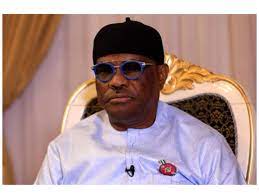
The Nigerian Minister of Finance, Wale Edun, has announced that the Federal Government will ramp up efforts to boost non-oil revenues as part of its strategy to cushion the potential economic impact of the 14% tariff imposed on Nigerian exports to the United States by former President Donald Trump.
Speaking at an event hosted by the Ministry of Finance Incorporated (MOFI) on Monday, Edun assured that the Economic Management Team (EMT) would convene to assess the possible effects of the tariff and make recommendations to mitigate its impact on the Nigerian economy.
He explained that while the tariff’s direct effect on Nigeria would primarily come through potential fluctuations in oil prices, the government is intensifying efforts to ramp up oil production while also focusing on increasing non-oil revenue generation. According to Edun, this dual focus aims to safeguard the nation’s economy from the volatility caused by these trade restrictions.
The recent tariff hike, which ranges between 10% and 65% for various countries, includes a 14% duty on Nigerian exports to the U.S. However, Edun noted a positive development in the ongoing trade dispute, revealing that on April 2, the U.S. government announced an exemption for mineral exports, including oil, from the tariff.
“The key concern for Nigeria is the potential impact on oil prices,” Edun said. “As the oil price remains a major determinant of our revenue, we are working diligently to ramp up crude oil production, which should help mitigate any price dips.”
Despite the uncertainty surrounding the global economic landscape, Edun emphasized that it is too early to say whether the tariff measures would be delayed, reversed, or fully implemented. However, he reassured Nigerians that the EMT would explore all potential economic scenarios and provide appropriate advice to the government.
Edun also highlighted Nigeria’s positive trade performance with the U.S. in recent years. According to the minister, Nigeria has enjoyed a trade surplus with the U.S. for the last three years (2022-2024), with exports to the U.S. reaching N1.8 trillion in 2022, N2.6 trillion in 2023, and N5.5 trillion in 2024. Notably, oil and mineral exports have constituted 92% of this trade.
“The tariff’s effect on exports is minimal if we maintain our oil and mineral export volumes,” Edun said. “We will also continue to enhance our focus on non-oil revenue mobilization through institutions like the Federal Inland Revenue Service (FIRS) and Customs.”
Furthermore, the minister underscored the importance of corporate governance in driving sustainable economic growth, particularly through State-Owned Enterprises (SOEs), which play a crucial role in sectors like energy, infrastructure, and telecommunications. Edun stated that, while SOEs possess significant potential to stimulate job creation and industrial growth, their effectiveness has often been hindered by inefficiencies and governance challenges.
“As the global economy grapples with uncertainty, sound corporate governance is critical in fostering resilience, boosting investor confidence, and ensuring long-term value creation,” he added.





